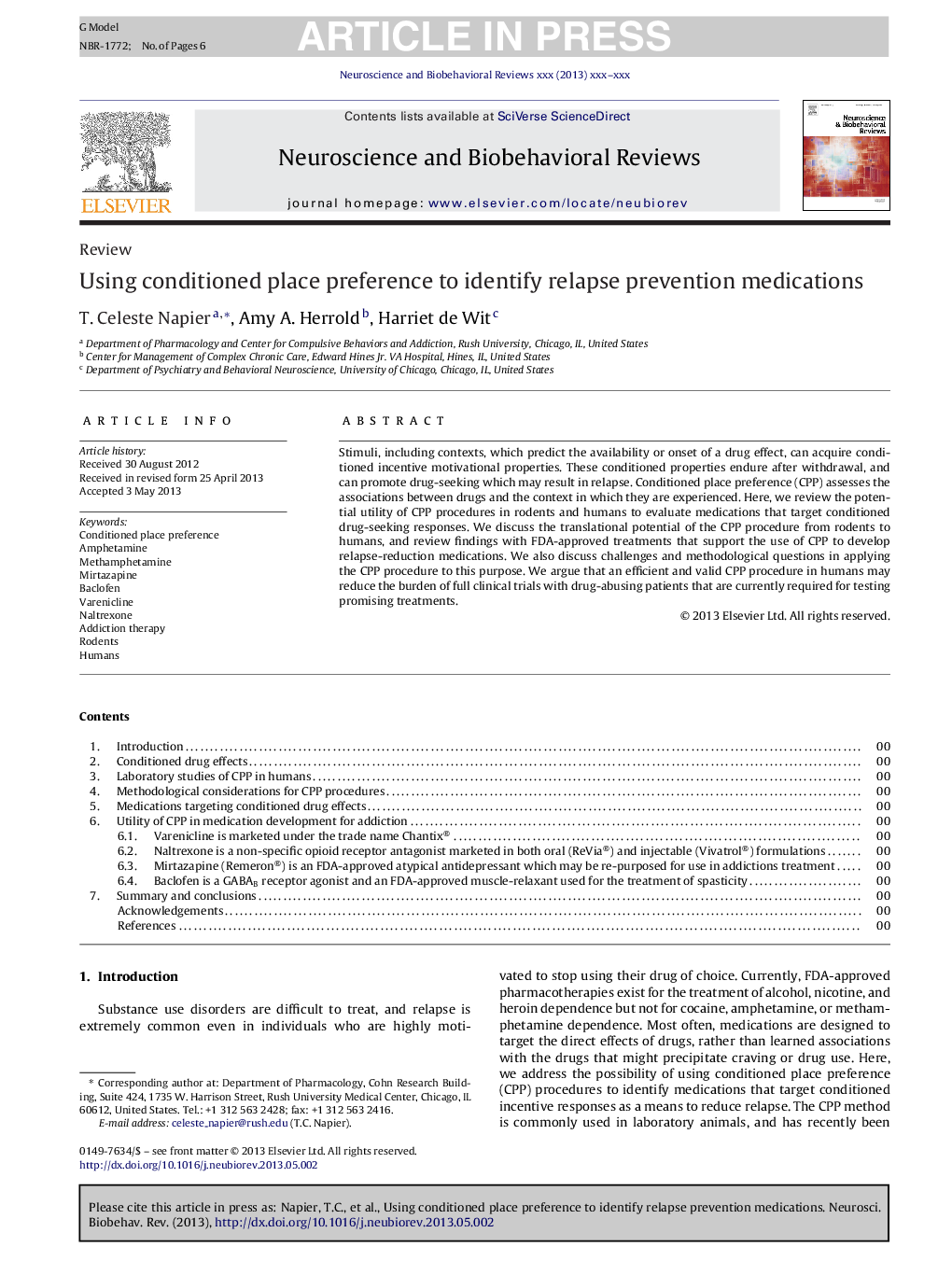| Article ID | Journal | Published Year | Pages | File Type |
|---|---|---|---|---|
| 10461439 | Neuroscience & Biobehavioral Reviews | 2013 | 6 Pages |
Abstract
Stimuli, including contexts, which predict the availability or onset of a drug effect, can acquire conditioned incentive motivational properties. These conditioned properties endure after withdrawal, and can promote drug-seeking which may result in relapse. Conditioned place preference (CPP) assesses the associations between drugs and the context in which they are experienced. Here, we review the potential utility of CPP procedures in rodents and humans to evaluate medications that target conditioned drug-seeking responses. We discuss the translational potential of the CPP procedure from rodents to humans, and review findings with FDA-approved treatments that support the use of CPP to develop relapse-reduction medications. We also discuss challenges and methodological questions in applying the CPP procedure to this purpose. We argue that an efficient and valid CPP procedure in humans may reduce the burden of full clinical trials with drug-abusing patients that are currently required for testing promising treatments.
Keywords
Related Topics
Life Sciences
Neuroscience
Behavioral Neuroscience
Authors
T. Celeste Napier, Amy A. Herrold, Harriet de Wit,
